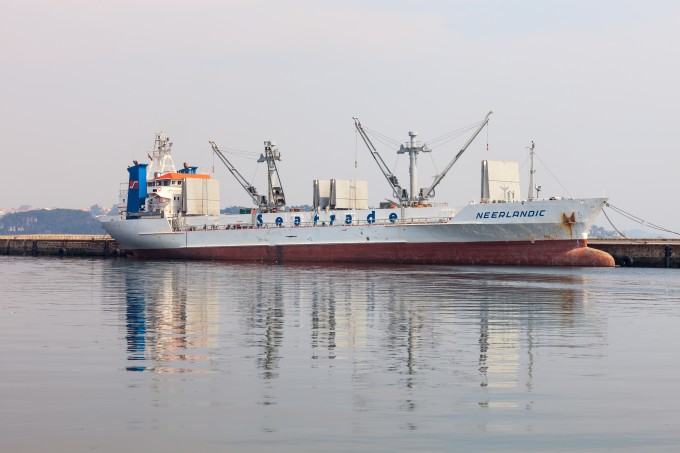
Further containerisation of seaborne perishable is
happening, despite a slowdown in conventional reefer vessel scrapping in 2015.
According to new analysis by Dynamar, conventional
reefer ship scrapping is at its lowest level since 2007, with only five vessels
scrapped last year compared with 65 in 2011.
Dirk Visser, Dynamar’s senior shipping consultant,
said: “Because of the sharp decline of oil and associated bunker prices – $300
a ton at the start of 2015 to $130 12 months later – many elderly,
fuel-guzzling dedicated reefer vessels suddenly became competitive again.”
Last year saw a complete turnaround in the specialised
reefer sector, according to Dynamar. Not only was there a steep reduction of
scrapping, but also a growing orderbook of 11 conventional reefer ships with
capacity up to 350,000cu ft.
However, less scrapping and more new orders has made
little impact on the general trend: reefer containers gaining market share in
the transport of seaborne fresh produce.
Dynamar analysis shows the reefer container fleet has
reached 2.6m teu, and estimates conventional reefer capacity will decline 41%
by 2025, continuing a trend that has seen its market share fall from 60% in
2000 to an estimated 26% in 2014.
Mr Visser added: “There are more reasons why 2015 may
well go down into history as a year of a profound, perhaps decisive, change in
the worldwide ocean transport of perishables. It involves a crucial change of
course of the world’s dominant conventional reefer operator, and fits in
entirely with the expected trend towards smaller shipments.”
He is referring to the decision by Antwerp-based
Seatrade Chartering to order four 2,200 teu containerships, with options for a
another four, as part of its “2020 fleet renewal” programme, which, according
to Dynamar, will see 20 container vessels added to its fleet by the end of the
decade.
“Seatrade’s 2020 fleet heralds [the start of] a shift
of the world’s largest conventional reefer operator to the container segment.
Who will be its first follower?” wondered Mr Visser.
Dynamar says the new Seatrade vessels will be
full-reefer-capacity units and, with speeds of up to 20 knots and a maximum
draught of 9.2 metres, they will have three times the pallet-capacity of the
line’s largest conventional ships. This means Seatrade can continue its
conventional scheduling and call at the smaller, specialised reefer ports near
produce-growing regions.
Seatrade chief executive Yntze Buitenwerf said:
“Transit times and associated indirect costs are increasing on services
operated by larger container lines, and there remains a clear demand for FDD
(fast, direct & dedicated) services operated by specialised reefers,
specialised containers vessels as well as hybrid vessels.”
Shireen Zarkani, head of reefer management at Maersk
Line, told The Coolstar the overall trend of replacing an older conventional
fleet versus a modern box ship fleet with increased reefer capacity remained:
“Although there have been a handful of new orders this year, the average age of
the conventional reefer vessel is 25 years compared with 10 years for
containerships.
“That said, the conventional sector has had something
of a second wind recently thanks to the low oil prices, which have made the
sector competitive again. We are not losing volumes to conventional vessels,
but the rate of conversion has slowed.
“The conventional fleet is operating at capacity, and I
don’t think that it is sustainable – in the long run these are still reefer
vessels operating on particular trades. It’s not the same as a global liner
network, which is now employing state-of-the art technology”, she said.
Overall, Dynamar expects the seaborne perishable trade
to continue expanding by 4-5% annually, at least until 2020. The combined total
capacity of conventional and reefer containerships reached an estimated 105.5m
tonnes in 2015, or approximately 3.55m 40ft high-cube reefer containers. Yet
these volumes account for just 2.7% of world seaborne trades of all kinds,
Dynamar says.
Source: the
load star. 11 February 2016
http://theloadstar.co.uk/coolstar/reefer-ships-stage-a-comeback-thanks-to-cheap-oil-but-more-perishables-are-shipped-in-boxes/
No comments:
Post a Comment